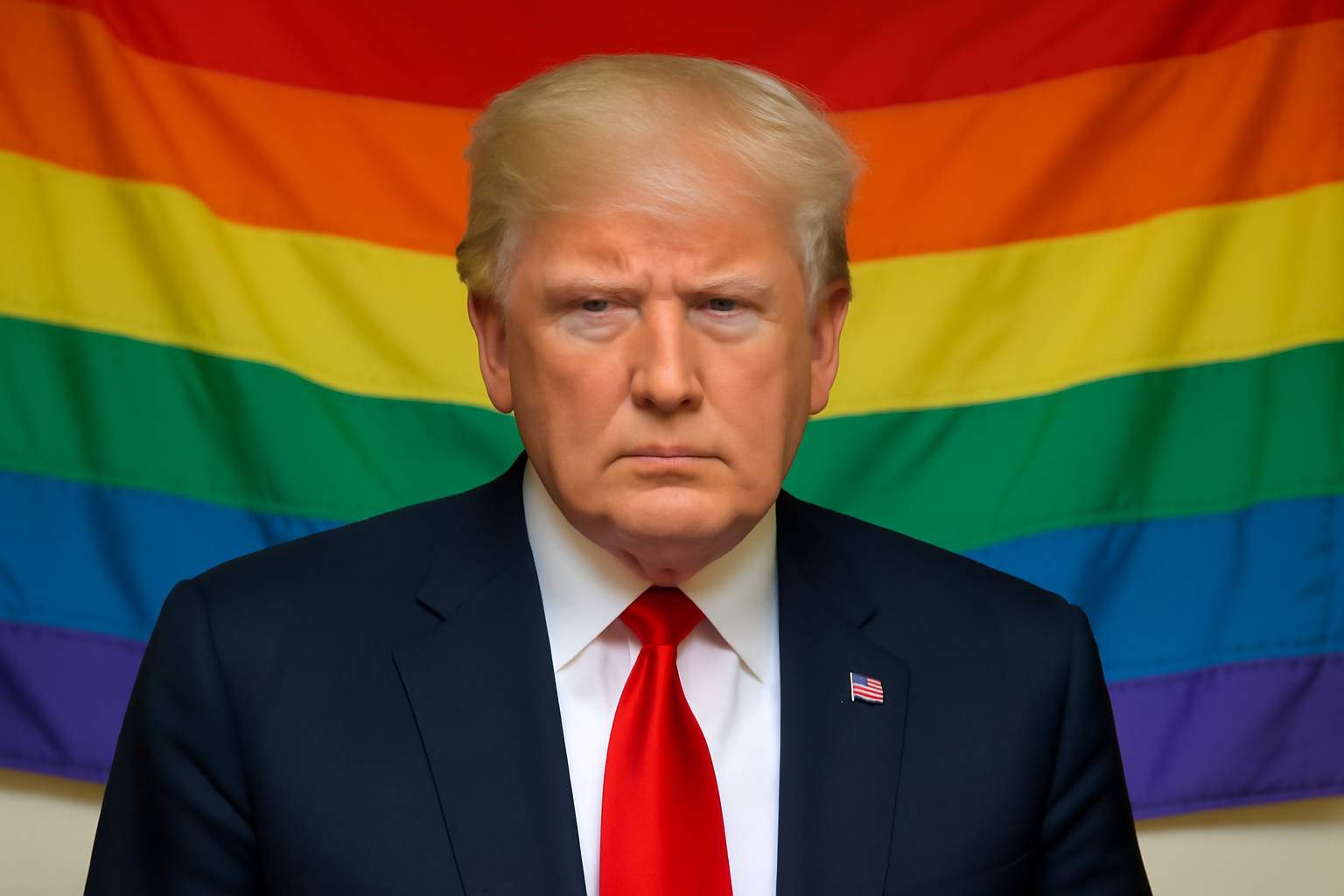
In a series of rapid policy changes, President Donald Trump has issued several executive orders that significantly impact LGBTQ+ individuals across the United States. These newly implemented directives have dismantled various protections and rights that were previously extended to the LGBTQ+ community during the Biden-Harris administration.
Executive Orders and Their Impacts
On his first day and within the initial week of his second term, President Trump has taken decisive action against LGBTQ+ rights. Among the most controversial is an order described as the "Defending Women From Gender Ideology Extremism and Restoring Biological Truth to the Federal Government." This order imposes restrictions on the federal government’s ability to recognize individuals whose gender identity does not align with their birth sex. This move is seen as facilitating discrimination in crucial areas such as employment, education, housing, and healthcare.
Under this directive, the attorney general is instructed to allow individuals to refuse the use of transgender or nonbinary persons’ correct pronouns. Moreover, it grants permission to claim the right to access gender-segregated spaces, such as bathrooms, based on sex assigned at birth. These provisions apply across workplaces covered by the Civil Rights Act of 1964 and other federally funded environments.
The order also affects the issuance of government documents. The U.S. Departments of State and Homeland Security are directed to halt the provision of documents such as passports, visas, and Global Entry cards that reflect a gender identity differing from the restrictive definition of sex now enforced.
Furthermore, the order cuts federal funding for any content perceived to support "gender ideology." It also imposes limitations on the use of federal resources to collect data on gender identity issues. Vulnerable groups, including transgender individuals in need of support, are particularly affected; the order mandates that trans women be denied access to domestic violence shelters, housed with men in correctional facilities, and denied gender-affirming healthcare.
Ending Diversity, Equity, and Inclusion Initiatives
A second executive order has been issued that targets diversity, equity, and inclusion (DEI) programs within the federal government. Although the order references "gender ideology" and "Project 2025," it fails to clearly define what DEI entails. This ambiguity is expected to complicate regulatory processes and potentially deter efforts that might be construed as DEI initiatives.
The Human Rights Campaign has expressed concern over these changes, noting the potential "chilling effect" on any DEI-related efforts. The lack of definition could lead to varied interpretations and enforcement, leaving many uncertain about what actions might be considered a violation.
Rollback of Biden-Era Protections
In addition to these new directives, President Trump has rescinded several executive actions put in place by the Biden administration. Among the repealed measures is the directive to implement the Supreme Court ruling in Bostock v. Clayton County. This landmark decision, made in 2020, determined that Title VII's prohibition of sex-based discrimination also covers sexual orientation and gender identity.
Despite the repeal of supportive measures, the ruling in Bostock v. Clayton County remains a binding legal precedent. However, the removal of executive guidance on its implementation raises concerns about how effectively this precedent will be upheld moving forward.
The recent actions by the Trump administration have sparked significant controversy and concern among advocates for LGBTQ+ rights. These policy shifts are anticipated to have far-reaching implications, affecting the daily lives and well-being of countless individuals.
As the nation grapples with these changes, many are watching closely to see how these policies will be rolled out and challenged in the coming months. The resilience and activism of the LGBTQ+ community will undoubtedly play a crucial role in navigating this challenging landscape and advocating for equality and justice.
Related Posts
Triumphant Trans Woman Wins Legal Battle and Inspires Others to Stand Up for Their Rights
Breaking new ground: a landmark victory in transgender rights After battling in courtrooms and enduring endless challenges, Diana Portillo, a transgender woman, has secured a monumental victory in her decade-long fight against workplace discrimination. The result? Nearly $1 million awarded in a historic settlement. But this isn't just a win on paper—it represents a powerful precedent in combati [...]
Pride Month in Latin America: Protests and Demands for Equality
**Celebrating Pride and advocating LGBTQ+ rights in Latin America** Pride Month in Latin America was a lively mix where celebration met activism. Communities united, not just throwing a party but making a stand—demanding equality and pushing governments toward better protection and rights recognition. Throughout Latin America, pride events erupted in marches and cultural displays, each with a c [...]
Transgender Erasure Actions Implemented by National Park Service
```html Trump administration's impact on national park service and transgender recognition The Trump administration made notable moves in undermining transgender representation, which included directing agencies like National Park Service not include "T" and "Q" when they refered “LGBTQ” in any official communication. This move seems part a broader plan by this administration aimed at reducin [...]